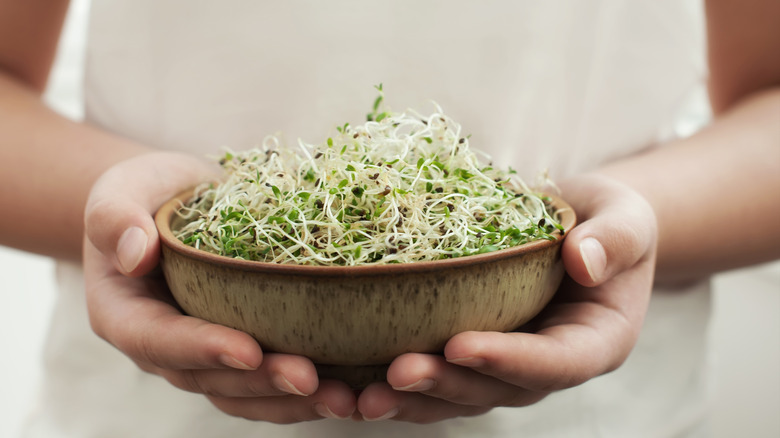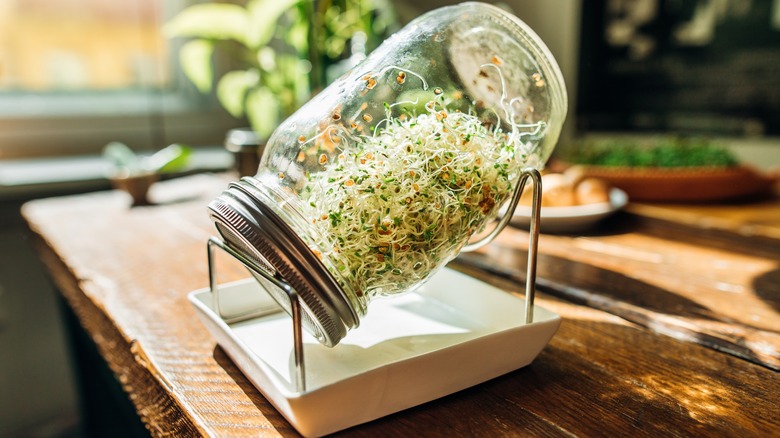The Contamination-Related Reason Nutritionists Warn Against Buying Grocery Sprouts
You've likely seen sprouts at your local grocery store or farmers' market. They're easy to grow and need hardly any room — you can even grow them in something as small as a Mason jar. Plus, they're quite healthy; the American Heart Association praises them for improving digestion and gut health. Perhaps the best part is that if you're growing them at home, the whole growing process takes less than a week.
It's easy to add sprouts to almost anything; they make a great addition to a salad or garnish for a meat dish. Plus, they're a popular go-to for stir fries. While these small veggies can play a big role in positive health and easy cooking, there's one major caveat.
Eating sprouts comes with a risk you might not be willing to take. It turns out, these tiny greens are easily contaminated — and some experts warn against consuming them altogether.
Grocery store sprouts are easily contaminated
Next time you think about picking up sprouts from your local grocery store, think again. The problem with purchasing store-bought sprouts is that you can't be perfectly sure of how they were grown. Sprouts need a wet, warm environment to thrive; when farmers grow them on a large scale, that wet, warm environment creates the perfect storm for bacterial growth. Salmonella and e. Coli can get into the water, and as a result, those sprout seeds can easily be contaminated. When you consume them, you consume the bacteria, too, which could result in foodborne illness.
Clemson University reports that between 1996 and 2010, sprouts were the root cause of 34 foodborne illness outbreaks. More than 2,000 people became ill during these outbreaks, which also resulted in 123 hospitalizations; one person died.
Sherry Collins, Sherry Coleman Collins, MS, RDN, LD of Southern Fried Nutrition, told Food Network that sprouts are "so prone to bacterial contamination, since they are grown in optimal conditions — wet and warm."
Growing sprouts at home isn't always safe, either
Although commercially-grown sprouts are the type people tend to worry, home-grown sprouts may not be any safer.
As the grower, you control more aspects of the sprouts' environment when you grow them yourself: the temperature, how many you grow, the seeds you choose, etc. The biggest problem, though, is that the contamination lies within the seed, and you can't possibly tell on its surface whether a sprout seed is safe. Because the seed itself is what carries contamination, there's no true way to ensure you're not risking illness.
The best way to avoid illness from sprouts is to cook them. Cooking the sprouts at a high temperature will kill any harmful bacteria, rendering them safe to eat. If you prefer raw sprouts, at least make sure they are in good condition, from a high-quality grower, and aren't past their expiration date.


